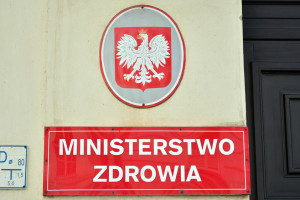On June 30, they will announce the details of the revolution for employees. "The first in this part of Europe"

Author: prepared by KM • Source: Rynek Zdrowia • Published: June 21, 2025 11:10 • Updated: June 21, 2025 11:10
The Ministry of Family, Labor and Social Policy is introducing a nationwide pilot of shortened working hours, which employers from all over Poland will be able to use. The program's budget for the first year is PLN 10 million. This pilot is to enable thousands of employees to work 6 hours a day, take a three-day weekend or additional days of vacation - all without reducing their current salary.
- Recruitment for the pilot will begin after June 30, 2025. The program aims to reduce working hours by 20 percent annually
- The following are planned: 6 hours of work per day, a three-day weekend or additional days of vacation, all without reducing salary
- For the implementation of the program, which will last from 15 to 18 months, the Ministry of Family, Labor and Social Policy has allocated PLN 10 million from the Labor Fund in the first year.
- Each employer - including entrepreneurs, local government units, foundations and associations - can receive up to PLN 1 million in financial support
- Reduced working hours are expected to bring numerous benefits to employees (better health, balance) and employers (increased efficiency, reduced absenteeism and turnover)
- After completing the pilot, the ministry intends to present specific legislative proposals by November 2027 at the latest.
As Infor writes, from June 30, 2025, reduced working hours are to become a reality for thousands of employees, although recruitment for the pilot program will begin after that date. On April 28, 2025, the Ministry of Family, Labor and Social Policy announced the beginning of preparations to launch a nationwide pilot, which is the first project of its kind on such a large scale in Poland and this part of Europe. The program's goal is to shorten working hours by 20 percent annually: this is to include options such as 6 hours of work per day instead of 8, a three-day weekend, or additional days of leave - without reducing remuneration.
For the implementation of the pilot, which will last from 15 to 18 months, the Ministry of Family, Labor and Social Policy has allocated a budget of PLN 10 million from the Labor Fund in the first year. The program is aimed at a wide range of entities, including entrepreneurs, local government units, foundations, associations and trade unions. Each employer who applies for the pilot will be able to receive financial support of up to PLN 1 million. These funds can be used to implement tools supporting changes, such as modifying work regulations, introducing digital systems for monitoring efficiency, as well as consulting and substantive support. The recruitment criteria will be announced by the ministry by the end of June this year.
This initiative responds to the needs of Poles, who are among the busiest nations in Europe: MRPiPS analyses indicate that long hours spent at work often do not go hand in hand with efficiency or increased productivity. Shortened working hours are to bring numerous benefits to employees and improve both mental and physical health, while providing more time for personal development and work-life balance. Positive effects are also to be felt by employers, through increased efficiency and creativity, reduced absenteeism, employee turnover and accidents at work. As it is noted, shortened working hours, contrary to popular belief, do not negatively affect the financial results of companies.
They already work like that in the office in Włocławek. The president praisesExamples confirming these benefits already exist in Poland. Krzysztof Kukucki, the mayor of Włocławek, cited by Infor, successfully introduced a 35-hour work week for several thousand employees of the city office and subordinate units. Herbapol Poznań SA also implemented shorter working hours, which contributed to achieving the best financial results in a dozen or so years in 2024, as well as reducing turnover and absenteeism among employees. Poland, following the example of countries such as France (where GDP increased by 81% after the introduction of a 35-hour work week), Denmark (37 hours per week) or Belgium (38 hours per week), is striving for a smarter work organization.
The current provisions of the Labor Code generally provide for an 8-hour day and an average 40-hour working week. There are systems of a shortened working week (Article 143 of the Labor Code) or extended daily working time (Article 144 of the Labor Code), but they often involve extending the daily hours on other days, which means the same total number of hours worked in the settlement period. The pilot by the Ministry of Labor and Social Policy aims to shorten the total working time without affecting remuneration. After the pilot, which will be monitored by the Shortened Working Time Team, the ministry will prepare specific legislative proposals. Deputy Minister Sebastian Gajewski declared that specific legislative changes regarding shortening working time are to be presented no later than November 2027, i.e. by the end of the current, 10th term of the Sejm.
Copyrighted material - reprint rules are specified in the regulations .
rynekzdrowia









